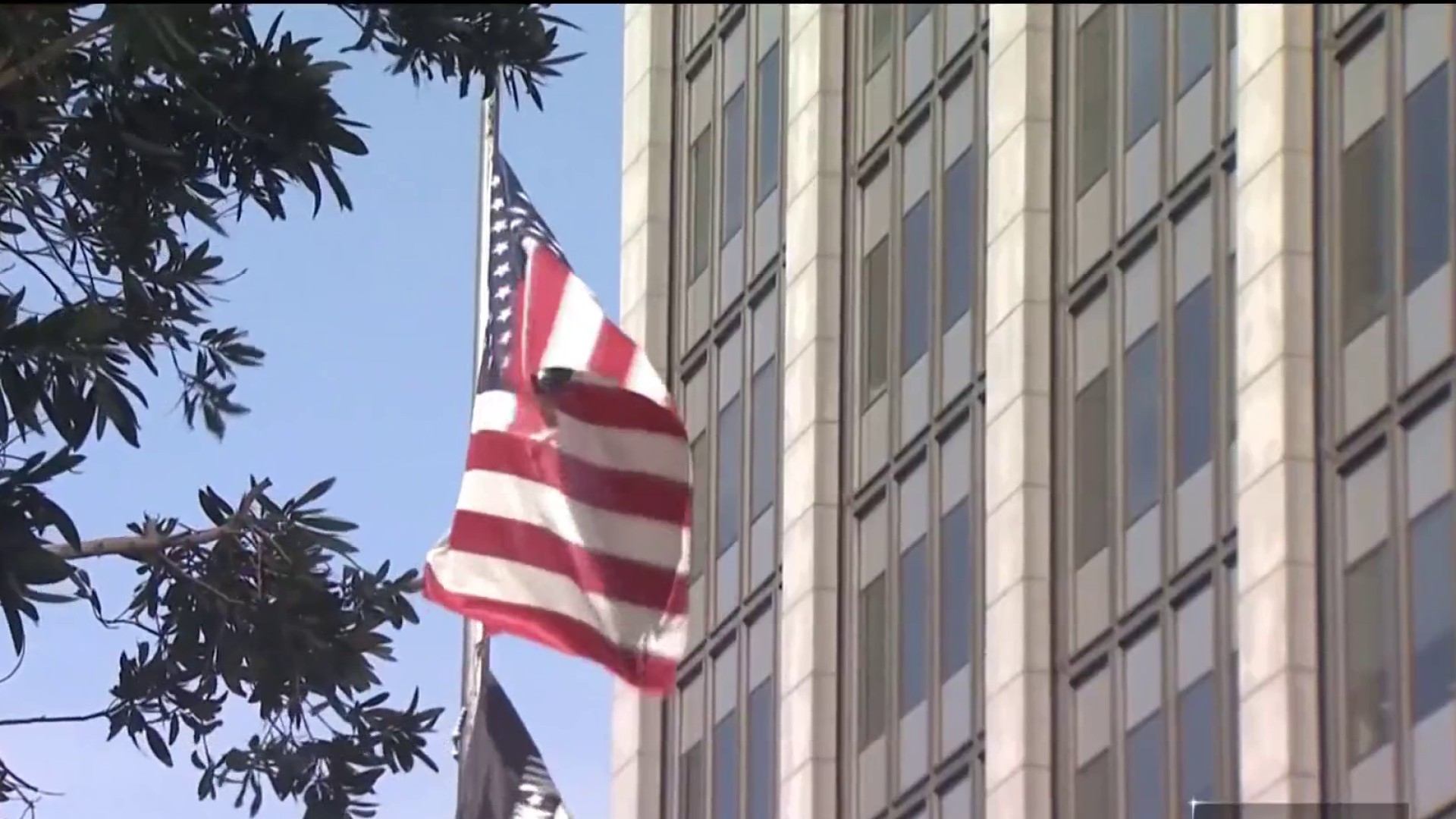A Bay Area bride accuses a photographer of releasing video from her wedding without her permission. She says the viral clip has left her “shocked, mortified, anguished, humiliated, and shamed.” Chris Chmura reports.
The bride and groom are so upset about their wedding video they are genuinely making a federal case out of it.
They are so embarrassed by what’s on the tape that they filed their lawsuit anonymously.
The plaintiff’s name is Jane Doe – an alias.
But Jane Doe is a very real person. The suit says the clip has left her “shocked, mortified, anguished, humiliated and shamed.”
Why? We’ve agreed to limit our description. What we can tell you is that during the reception, the garter removal goes badly, thanks to a groom who had too much alcohol.
“Obviously inebriated,” the suit says.
“It got a little messy and he fell down a few times,” the bride recalls. She was left in tears, though she quickly got over it.
Local
“My husband joked that we’d renew our vows in a couple year and he’d make it up to me and, you know.”
But last summer, the bride and groom discovered that part of their video had been uploaded to Youtube.com. They were astonished.
“A friend of my husband’s in Ireland – who wasn’t even at the wedding -- saw the video online,” she said.
The regrettable scene went viral.
“Within a few days it was up to like two million views,” she said.
Where? The Huffington Post, e! Online, Cosmopolitan, Facebook, Twitter, Reddit, and many others, according to the suit. Watched by “millions of internet users,” the suit says.
The headlines and comments were scathing.
“It hurts,” the bride said.
Jane Doe’s suit accuses the photographer of uploading it to Youtube without the couple’s permission. She also claims the clip that went viral is actually longer and more damaging than what is on the DVD she keeps locked up home.
“We didn’t even know that footage existed until we saw it online,” she said of the crying scene.
The couple hired George Street Photo and Video, a company that offers to take pictures all over the country. It’s really based in Chicago.
When we requested an interview, its founders responded with a written statement that says:
“In our 12 year history of capturing, editing, and delivering thousands of wedding photos and videos, we have never experienced anything like this.”
It went on to say:
“We are very disappointed and upset by this situation, and we have spent considerable time removing our video from the internet.”
Did you catch that? “Our” video.
It’s the couple’s wedding and the couple’s faces exposed on the internet, but George Street owns the video.
“There’s no question in the law about that,” said University of San Francisco law professor Robert Talbot.
Talbot explained a facet of copyright law that few consumers probably realize.
Although you pay for a photographer’s services, the images they capture remain their property.
“Any photograph by any photographer is considered a creative work, that belongs to the author – the photographer – and they have full rights,” he said. “full copyrights.”
While George Street owns this video, the bride’s suit argues that letting it loose on the internet was an “intentional infliction of emotional distress.” And George street should pay her damages.
“It’s important for companies to understand that if they don’t take that responsibility seriously, there is a price to pay for that,” said Hank Burgoyne, the bride’s attorney.
Burgoyne says the video regularly re-appears online, and contends that George Street is on the hook for the recurring cost of getting it removed. He says a trial will also unearth whether or not anyone made money.
Ultimately, he wants a jury to decide the case of Jane Doe vs. George Street Photo.
“If it has to tell its story, it has to make its excuses to real people,” Burgoyne said.
The bride’s lawsuit also accuses George Street of false advertising. The couple says it led them to believe George Street employees were recording their wedding, but later discovered the photographer was a local contractor.
We called him. He did not respond.
Is there a lesson here for the rest of us? Perhaps.
Professor Talbot says you can try to protect yourself. When drawing up a contract with a photographer, you could insist on transferring ownership rights to you.
“You can negotiate,” Talbot said. “And, you can try to get the release of the copyright to you. That way you would be the owner of the copyright.”
There’s no way to know if that strategy would have stopped the photographer the couple says shared the video.
“He’s made a joke of our wedding day,” the bride said. “That’s my face, and you’re in charge of the footage. And you’re putting it online. You’re going to be held accountable.”
She said she is hopeful that making a federal case out of a wedding video sets a precedent. And telling her story – even if anonymously – serves as a warning for others.
“We need to speak up because it’s going to keep happening to other people,” she said.



